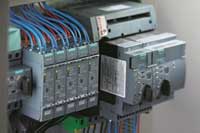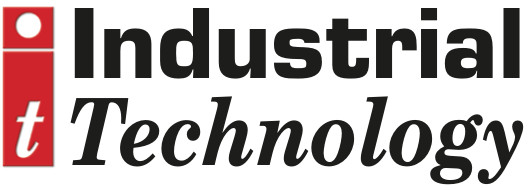
Posted to News on 23rd Sep 2013, 00:00
The efficiency drive for better motor control
Energy conservation is becoming an increasingly important consideration for both end-users and machine and equipment builders. This change is driven by a combination of both environmental reasons and continually increasing energy costs. However failure to invest in more efficient products and machinery to gain short-term 'cost savings' could be a false economy.

>Increasing industrialisation worldwide is resulting in the expansion of automation and increased usage of electric motors. With over 20% of all UK electricity consumption associated with the operation of industrial motors, and a recent IMS 2013 research report forecasting that the global LV motor market will grow upwards of 9-10% every year through to 2017, embracing energy efficient motor control now is vital for the future success of any manufacturing business.
>How does my machinery become more energy efficient, you might ask. It starts with the motor. With the largest proportion of motor electricity consumption falling within mid-size low-voltage (LV) AC motors with output power over the 0.75 to 375kW range this is where to focus. The IEC 60034-30:2009 standard defines efficiency classes for three-phase asynchronous LV motors over this power range.
>During 2010 the IE4 classification was added to the standard and manufacturers are already starting to launch motors, which meet this enhanced performance level. Therefore one option is to ensure all new or replacement motors are either IE2 or IE3 performance. Since 2011 in Europe only motors with a minimum performance of IE2 can be sold, and by 2017 only a minimum of IE3 will be allowed. Choosing to fit new IE2 motors instead of having old motors re-wound has been shown to offer real savings, and RS has IE2 compliant motor ranges from Siemens, ABB and TECO to help make this task easier.
>Starting and control
>Another key factor in the drive to reduce energy costs and improve operational efficiency is better motor control. While there are several options for motor starting, part of the solution increasingly includes the use of 'soft starters' and variable speed drives (VSDs). Let's consider the more traditional three-phase motor starting methods.
>Direct-on-line (DOL): A very simple and common way of starting three-phase motors that uses only a main contactor and thermal overload to directly connect the supply to the motor
>
Advantage - Cost effective>Disadvantage - Very high starting current and starting torque causing stress to the motor and drive train; doesn't lend itself to remote control as the high in-rush current of large contactors is unsuitable for direct control from transistor (PLC) outputs.
>
>Star-Delta (SD): Changes the wiring of the three motor windings from delta (230V across each winding) to star (400V across each winding) reducing the starting current by 60% compared to a DOL starter. Star-Delta starters consist of three contactors, thermal overload and a timer.
>
Advantage - reduced starting current and torque lowering mechanical stresses.>Disadvantage - More expensive than a DOL starter; multiple points of potential failure; will prevent motor loads requiring more than 50% of the full motor rated torque from starting.
>
>Both these control methods have disadvantages, and while Star-Delta starting does reduce in-rush starting current and limit the torque it can't be 'fine-tuned' for the application and doesn't lend itself to continuous start/stop operation.
>Soft-starters: Savings can be achieved by using a soft-starter in a number of ways. Wear and tear is reduced by matching the start-up torque and duration to the load, reducing transmission and drive train stresses. This reduces maintenance and downtime. Any business would like to reduce both of these costs.
>Energy saving can be achieved by integrating the soft-starter into the machine's automation system and removing elements of manual control so the motor is not left running when not in use. A common application is stopping out-feed conveyors when there is no product. By using a simple photoelectric sensor to detect product, the conveyor can be quickly brought up to speed when product arrives and halted when no product is available.
>Because soft-starters don't use mechanical contactors with moving parts, their operation life is considerably longer and they combine all the components found in a traditional starting solution in a single, compact unit. RS has a complete range of soft-starter solutions from leading brands available from 1.1kW to 800kW.
>Variable speed drives: Many applications will have variable loads and many industrial processes, such as assembly lines, have the requirement to adjust the motor speed. By adapting motor speed and torque to the required load, it is possible to make large gains in efficiency via the use of a VSD. For many applications, such as small size cranes, car washes, conveyor, elevators, drilling or woodworking machinery, the savings are made by matching the speed and torque to the current load.
>However, if the VSD is used in a pump or fan control application savings of up to 50% are possible. For example a fan running at 80% speed only uses 50% of the energy compared to one running at full speed. Yet far too many pumps and fans run continuously at full speed, with the output regulated by inefficient throttling devices such as dampers or valves. Combined with these energy saving opportunities, VSDs also allow machines to run more efficiently, and in some cases faster, as the speed can be smoothly altered by the PLC or logic controller to suit the process requirements - avoiding time consuming, and mechanically stressful stops and starts.
>A vast range of AC motors, DOL, Star-Delta and Soft Start-up starter devices and VSDs is available from RS Components, representing many leading brands including ABB, Eaton Moeller, Mitsubishi, Omron, Schneider Electric (Telemecanique), and Siemens.







